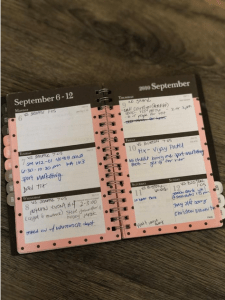Pomp and (Unusual) Circumstance
Entering the industry during COVID-19
Published on April 8, 2020, at 9:43 p.m.
by Dylan Lanas.
COVID-19 has taken the world by storm. The novel coronavirus permeates nearly every second of discussion. The pandemic has also sparked worries of a possible recession.
On March 10, 2020 — 11 days after the first confirmed case of COVID-19 in the U.S. — the DOW reported a 20% loss compared to the previous month.
With stay-at-home orders increasing, business owners rightfully worry about the financial future of their businesses and the nation. These worries also bring up memories of the most recent recession — the housing market crash of 2008.
For public relations graduates looking to enter the field, the upcoming year — or years — can be intimidating. How can lesser-experienced individuals hope to secure a job while companies and agencies cut their budgets?
A 2009 PRSA article highlighted multiple college graduates hoping to enter the public relations workforce amidst the peak of the Great Recession.
Many of these individuals succeeded in breaking into the industry. Here are their stories of beginning their careers.
Tina Sturdevant
“My life was hell for two years.”
2008 was looking good for Tina Sturdevant. At the time, she was interning at her university’s athletics department while also working part-time at the local courthouse in an administrative role.
Unfortunately, as the recession dragged on into 2009, what initially was going to transition from an internship into a full-time position fell through due to hiring freezes.
What ensued was a multiyear process of balancing work, internships and graduate school. Long drives and long days were the norm in a time that challenged and developed Sturdevant. Over two years, Sturdevant went from a public relations intern with the Oakland A’s to Bleacher Report’s first full-time hire following the outlet’s acquisition by Turner Broadcasting in 2012.

Sturdevant’s advice for new graduates heading into a tightening job market: Join professional organizations, know how to network, and be realistic about the hiring process.
“I can’t stress the importance of professional organizations enough,” Sturdevant said. “These can connect you to people who can share their unique experiences with you and give you a platform to network, especially for people of color.”
Even as a recent graduate, Sturdevant used airline rewards and deals to attend PRSA conferences that put her in touch with other professionals in the industry. Sturdevant advises students to not be dissuaded from joining these organizations if your job titles are not an exact match.
“You don’t have to necessarily be an on-air reporter in order to join a news organization,” Sturdevant added. “If you work anywhere in the media-sphere, you can join.”
Sturdevant also stressed the importance of being realistic with work.
“In the end, you still have bills to pay. Working part-time in something like retail will not set you back, especially when you can still work on your passions on the side,” Sturdevant suggested.
Along the lines of financial responsibility, Sturdevant strongly encourages students to be intentional with graduate school.
“Don’t go to graduate school just to buy more time if you don’t know what you want to do,” Sturdevant advised. “It’s important to have experience that you can contribute to the program. Otherwise [graduate school] can be very costly and something you don’t get as much out of.”
Ben Sailer
“It took me about 15 months to get my first full-time job.”
Ben Sailer graduated in 2010 and now works in a marketing role at Coschedule. In the immediate months after graduating, Sailer noted that the hiring process tightened up considerably as the recession peaked.
“Oftentimes it would come down to me and one other candidate,” Sailer said. “I think it really shows how competitive this field is even without a recession.”
When it comes to recessions, Sailer reminds job seekers that marketing budgets are typically one of the first reductions for companies to enact. External factors can often drive companies to turn down candidates who otherwise are entirely competent and skilled, Sailer said.
Ultimately, Sailer advises job seekers to keep an open mind for what they apply to.
“Sometimes I wouldn’t see PR or marketing listed explicitly in a job title, and I’d think I was unqualified for it,” Sailer said. “I realize now that skills can transfer despite what a certain job may be called.”
As for marketing yourself to employers, Sailer has three main tips: Form a quality online presence, be able to prove the results of work that you’ve done, and show initiative.
During his job search, Sailer made an online portfolio website —an asset that was rare for students to have at the time. This helped him stand out. While personal websites have become more commonplace, the content still remains the most important element.

Sailer recommends listing quantitative results when possible, such as impressions and comments or including links to stories that ran one of your news releases. After all, being able to prove your worth is an essential skill, recession or not.
Showing initiative by reaching out to companies on your own time is another simple way to make yourself stand out, Sailer said. For example, you can use a company’s contact link to introduce yourself, talk about your background, and then attach contact information for the company to archive.
“Students and recent graduates just don’t do this [outreach] a lot,” Sailer said. “If a student reached out to me to go get coffee and learn about the industry for 30 minutes, then I would say yes to that every time.”
Looking ahead
Recessions are a natural part of the economic cycle. The uncertainty caused by these dips is scary for everyone, especially people entering the public relations industry amidst COVID-19. However, there are positives to take away from this experience.
Jaya Bohlmann is a certified career coach and PR professional with a specialization in branding. Bohlmann also currently teaches at the University of Maryland as a communications professor.
Bohlmann reassures her students that many things remain the same in terms of finding jobs. While COVID-19 may move many job application processes completely online, these are functions that have increasingly digitized before the pandemic.
Bohlmann recommends that you remain consistent in the creation of your brand: Have an updated LinkedIn page, create an online portfolio, and apply many of traditional interviews’ best practices to your video interviews.
Sailer offers additional positive advice for graduates.
“Don’t give up on yourself. Recessions are not forever,” Sailer said. Like Bohlmann, Sailer recommends that job seekers use the extra time at home to focus on themselves and be ready for when the next opportunity comes.
Now more than ever, people are looking for new content. Sturdevant suggests using this moment to market yourself.
“Be conscious and engage in conversations,” Sturdevant said. “Companies may pause for right now but that’s because this is a truly unprecedented event. Now is a great time to put yourself in front of others online.”
The upcoming months promise plenty of uncertainty due to COVID-19. However, graduates should control what they can. While times may — and likely will — get tough, recessions are not an impenetrable obstacle. There will be an end to the current situation, and you can be more than ready for it if you are proactive.




